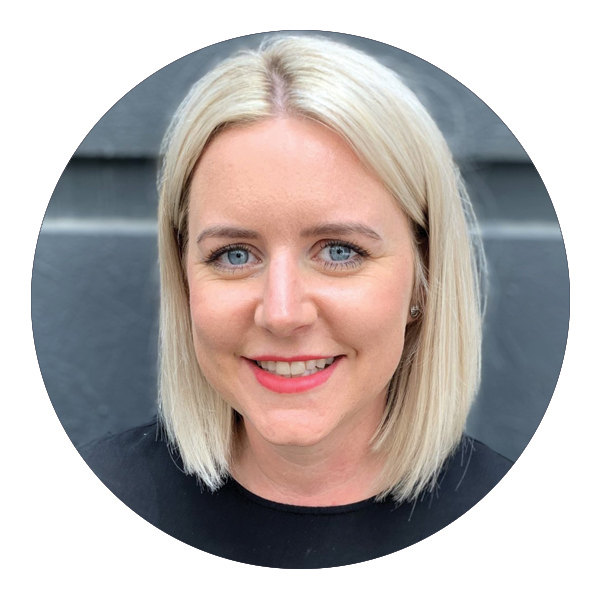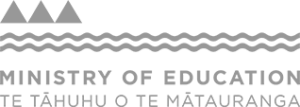CEO Update
Kia ora,
Our first quarter of the new financial year got off to a hectic start.
Netsafe was reappointed for another five years under the Harmful Digital Communications Act (HDCA) 2015. This means we can continue to provide the service that supports people who are experiencing harm online. I want to acknowledge the mahi of everyone at Netsafe to get us to this point.
I’m proud to also share that we hosted New Zealand’s first-ever Netsafety Week in July which was designed to Make Aotearoa Safer Online.
We decided to organise this week as the past year has only reinforced the importance of connectivity and because Netsafe is continuing to receive more requests from people needing help. We wanted to do something practical that would make a difference to the community. We set ourselves the goal to unite as many supporters as we could to share advice, resources and reinforce where to get help if things don’t pan out.
We were overwhelmed by the response to this call to action and I’m grateful to our sponsors, supporters and everyone else who has helped make New Zealand’s first dedicated online safety week such a success. Special thanks to the Ministry of Justice, Ministry of Education, Instagram, Facebook, Twitter, Chorus, TikTok, NZME, mi9, Motion Sickness, Whittakers and express.
During the week, we also shared our State of the Online Nation study. It showed that 68 per cent of people believe the internet is more dangerous now than it was five years ago, and 52 per cent think it will be more dangerous in 2026. Although the community has a somewhat pessimistic outlook on the internet – many think there is a range of things that can be done to make it safer including education.
Netsafe also released details about Aotearoa’s Online Safety Code of Practice. This initiative represents an opportunity to establish a world-leading online safety code of practice to ensure a safer internet experience for New Zealand. The Code will be available for public consultation in December.
As Aotearoa moved back to alert level four, the community again relied on virtual connections.
We knew from our experience last year that mostly people have positive online experiences, however we expected do see an uptick in demand for our services as people settled into their routines. Our 2020 study into the experiences of unwanted digital communication before, during, and after lockdown identified a likely increase if a similar event was to occur again.
It is not surprising then that Netsafe recorded high number of reports – and the types of reports were increasingly more complex. In fact, we experienced the busiest quarter in our 20-year history. As well as a record number of personal harm reports, we dealt with an increase in the number of people seeking support who were targeted by scammers.
Our website saw a 65 per cent increase in traffic, with demand for self-help resources continuing to rise. And Netsafe’s dedicated education team remained on hand to guide schools through the different learning levels throughout the country.
On a personal note, I wanted to let you know that I have resigned as Netsafe’s CEO after 15 years. Now feels like a good time to explore some new opportunities and I believe it is the right time, both for me and for Netsafe, to start this next chapter.
My last day will be on 3 December. Netsafe’s general manager Andrea Leask will be interim CEO while the Board recruits my replacement.
It has been an amazing experience being CEO, building on the foundations of the Internet Safety Group to create the Netsafe we have today. There have been many highlights over the years, however I will look back most fondly on the projects and events that brought the online safety community together. I want to thank you for your support of Netsafe during my time.
Martin Cocker
CEO, Netsafe

Report Contents
Senior Leadership Team Update
Sarah White, HDC Services Manager
I am delighted Netsafe has been re-appointed to provide the service under the HDCA, especially as I have been a part of the HDC Services team since Netsafe first began performing this role to assist people in resolving incidents of online harm. I am proud of the team for the continued commitment to help New Zealand internet users have a safe and positive experience, assisting in resolving incidents that are causing harm and in breach of the Act.
This quarter has been the busiest for HDC Services since the establishment of the Act. With parts of New Zealand moving back into the COVID-19 alert levels people spend more time online and unfortunately, that can bring more challenges. Our team have responded successfully to the increase in the demand for our service continuing to do our best to provide people with the knowledge, skills, and options which offer solutions for them to resolve their issue.
With the dedicated commitment and expertise of the team and the support from the many organisations and agencies we work with daily, we continue to strive to make a positive difference to internet users and will continue to focus on reaching and supporting those most at risk of experiencing harm online.

Quarterly Results
Between July and September 2021, Netsafe has seen a significant increase in people coming to Netsafe for assistance. There was an increase of 41 percent in the number of reports compared to the previous quarter.
TOTAL REPORTS (+41%*)
PERSONAL HARM REPORTS (+14.86%*)
SCAM & FRAUD REPORTS (+58%*)
OTHER REPORTS (+26%*)
*percentage change based on reports made to Netsafe when compared to the last quarter
Reports by age group
2.2%
00-12
8.7%
13-17
7.2%
18-21
35.7%
22-40
32.2%
41-64
14.6%
65+
Reports by region
Reports by gender
54.6%
FEMALE
5.2%
GENDER DIVERSE
40.2%
MALE
Personal Harm Reporting
Between July and September 2021, Netsafe received 1046 personal harm reports. The top personal harm categories for the quarter were:
Reported breaches under the Harmful Digital Communications Act*
* Cases often involve breaches of more than one communication principle
Scam and Fraud Reporting
Netsafe has also continued to see the trend in reports about scammers using well-known brands in text and email scams. Often people are told they have won a prize (e.g. supermarket voucher or a mobile phone) or that they could win a prize by completing an online survey. The online survey asks for personal details and sometimes credit card details to pay for the shipping of the prize. Fortunately, the reported financial losses to this scam have been low.
Scam & fraud snapshot
$6.89M
REPORTED LOSSES
962
REPORTS WITH $ LOSSES
$7,169.08
AVERAGE LOSS
Top scam categories reported
Education & Engagement Services
Netsafe also worked with Voices of Hope, a mental health charity, on their new campaign, You Wouldn’t Say It To Their Face. This campaign highlights mental health issues stemming from online abuse and bullying. It involves a series of videos including lived experience interviews and a social experiment that shows the impact online harm can have on someone’s wellbeing.
Given Netsafe’s own research indicates young people are significantly more likely to experience harm online, we were proud to see three of our YAS contribute. Find out more.
While Netsafety Week was a major public education campaign that helped Make Aotearoa Safer Online in this quarter, we also want to keep the momentum going. This is why we’ve started planning for Safer Internet Day on 8 February 2022. If you’re interested in participating, please email [email protected] to find out more.
Some of the other activities included:
About Netsafe
Find out more at www.netsafe.org.nz
BECOME A NETSAFE MEMBER
Netsafe is incorporated as a society and a charity. Our members represent a variety of backgrounds and countries, but all have one thing in common – an interest in keeping people safe online. Membership is free and easy to apply for. Find out more about being a Netsafe member or apply by completing our online form.
Find out more about being a Netsafe member, or apply to join today by completing our online form.
REPORT DATA
The data in this report represents the data available at the end of the quarter. Information related to the reports made to Netsafe reflect high-level trends and does not include easily identifiable information about specific reports/incidents.
If you have any queries about the information in this report, please email [email protected]



